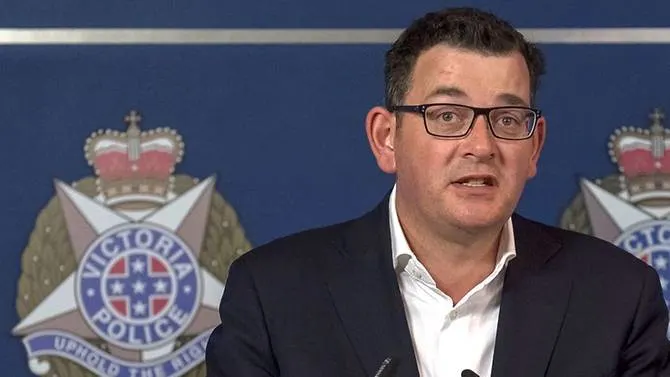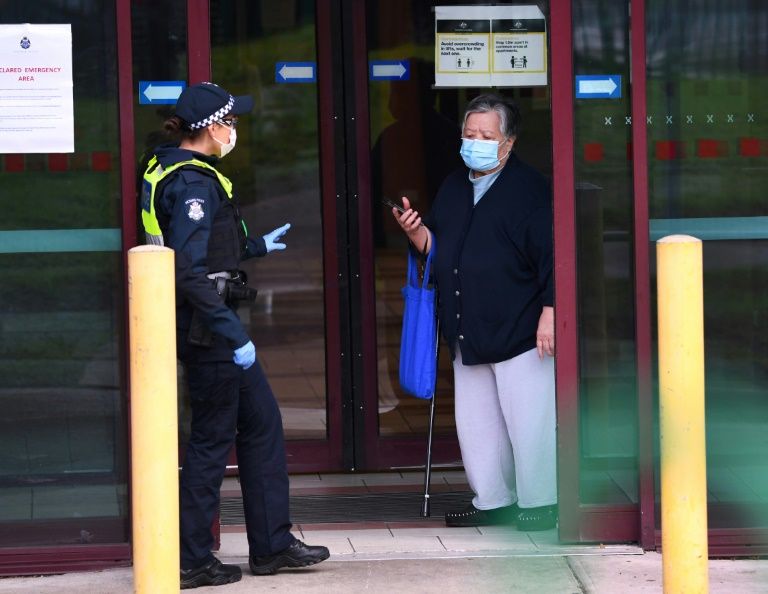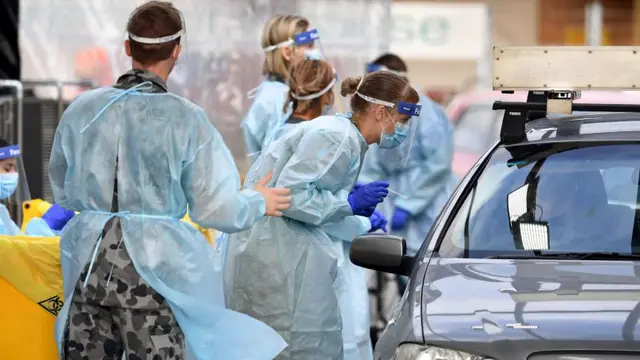More than five million residents of Melbourne would be locked down for six weeks after confirmed COVID-19 cases surged in Australia's second-biggest city, authorities announced Tuesday.
Victoria State Premier Daniel Andrews said the lockdown would begin at midnight Wednesday and last at least six weeks, warning residents "we can't pretend" the epidemic crisis is over.
After the southeast city detected 191 new cases in 24 hours, Andrews stated it was not plausible to trace and track everyone as there were too many cases, so restrictions were needed.
"These are unsustainably high numbers," he said."No one wanted to be in this position. I know there will be enormous amounts of damage that will be done because of this. It will be very challenging."
The surging number of COVID-19 cases in the Victorian capital of Melbourne in recent days prompted authorities to enforce strict social-distancing orders in 30 suburbs and put nine public housing towers into complete lockdown.
Residents will be restricted to their homes except for work, exercise, medical care or to buy essentials. Most students will return to remote learning while restaurants and cafes will be limited to serving takeaway food.
Experts have warned that people everywhere will have to get used to the "new normal" of on-and-off restrictions as new clusters emerge and subside.
But there is growing concern that most of Melbourne's new cases are not directly linked to residents returning from overseas.

"The situation we are in is more serious than late March, because we have community transmission, which is much harder to track than infection in return travelers," said Raina MacIntyre, a biosecurity expert at the University of New South Wales.
Sealed off
The border between Australia's two most populous states would close from Tuesday for an indefinite period as authorities scramble to contain an outbreak of the COVID-19 in the city of Melbourne.
The decision announced on Monday marks the first time the border between Victoria and New South Wales has been shut in 100 years. Officials last blocked movement between the two states in 1919 during the Spanish flu pandemic.
"It is the smart call, the right call at this time, given the significant challenges we face in containing this virus," Andrews said.
The move will, however, likely be a blow to Australia's economic recovery as it heads into its first recession in nearly three decades.
Police and the military say they would patrol dozens of border crossings and use drones and other aircraft to check the vast frontier with other states, where the COVID-19 has been contained.
Health officials last week effectively shut off about 300,000 Melbourne residents from the rest of the city until the end of July, but that has now been extended beyond those neighborhoods.

Around 3,000 people in the city were also locked down in their homes on Saturday in Australia's strictest coronavirus response to date after a cluster emerged in a high-rise public housing estate.
So far, 69 cases have been recorded across the nine densely populated towers and there are concerns the virus could spread widely, with one health official likening the crowded conditions inside to "vertical cruise ships."
Cruise ships emerged as early coronavirus hotspots, with passengers and crew often packed in small cabins and at high risk of infection.
Australia has fared better than many countries in the coronavirus pandemic, with some 9,000 confirmed cases of COVID-19 and 106 deaths related from the virus. The Melbourne outbreak has raised alarm bells, while other regions are enjoying relaxed restrictions after largely curbing the virus's spread.
Health officials have begged the public to get tested, saying online disinformation had spurred more than 10,000 people to refuse testing.
The country has reported an average of 109 cases daily over the past week, compared with an average of just nine cases daily over the first week of June.
Melbourne locals are concerned that renewed social distancing measures have not been implemented uniformly across the city.
"Without a full Melbourne lockdown, I am not super confident this is going to be contained," Jack Bell, a lifeguard who lives in Victorian suburb of Kensington said.
(CGTN)
 简体中文
简体中文

